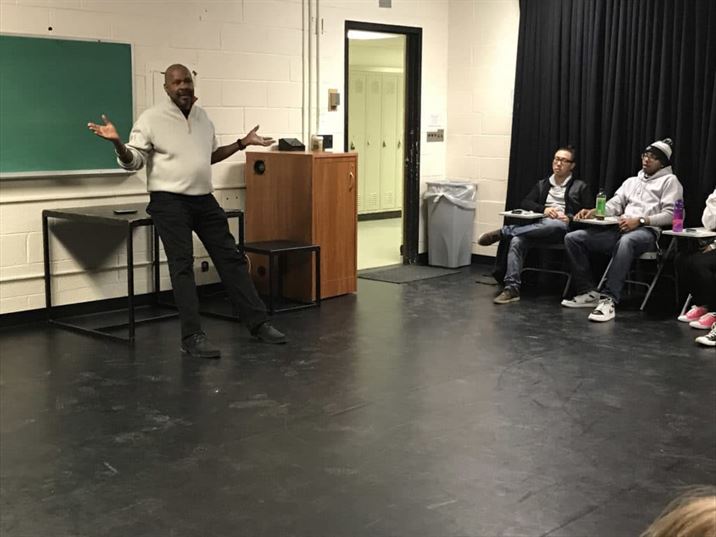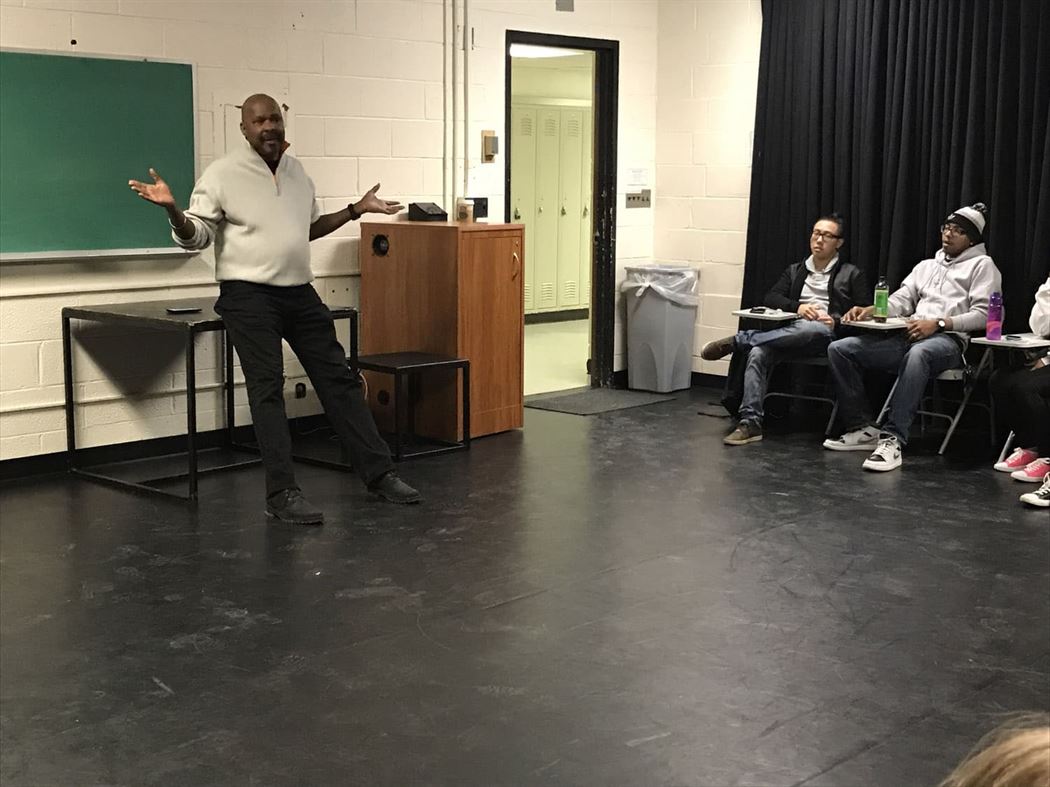
Professor Michael Allen, special advisor to the dean on diversity initiatives, addresses his acting class.
Photo Credit: Awije Bahrami
The first panel discussion prompted by last semester’s student protests alleging blackface in “Aida” will take place on Friday after a read-through of an African-American play performed with an all-black ensemble in honor of Black History Month.
The panel discussion is part of a larger initiative to have more diversity and inclusion in the Department of Theater and Dance.
According to Andy Stover, the literary manager of the department, the initiative will include “choosing plays from a diverse roster of writers, from different ethnicities, racial backgrounds and to also address the broader issue of inclusion and color-blind casting.”
Five months ago, a group of students held a series of demonstrations outside Memorial Theater, saying that white actors were using “blackface” in the production of “Aida,” a musical about an Ethiopian slave princess.
Faculty from the Department of Theater and Dance dismissed this charge at the time, saying some actors were simply using stage makeup to depict tanned skin. Nevertheless, the chairperson of the Department of Theater and Dance, Randy Mugleston, promised to host discussion forums to promote open conversation about inclusion and the arts.
The debate for more inclusion in the department has been going on for years, said Michael Allen, an associate professor of acting and the special advisor to the dean on diversity initiatives, who spearheaded the discussions for more representation of minorities.
“We need to take a better look at what we are planning for our season selections to include shows that are more designed for African-American or Latino students,” Allen said, adding that the plays should portray not only Latino or African-American people, but also black or Latino culture.
It’s not just Allen who feels this way. Some students also say the department needs more inclusion.
Senior theater studies major Benjamin James thinks that the department could do a better job in that respect. “The staff should reflect the students, and the productions should reflect the diversity of our student body as well,” said James.
Senior Theater Production major Dania Felix who initiated the “Aida” protests last semester said the department is doing what they think is best for the students.
“In reality it is not helping out all the minorities,” said Felix, adding that as a starting point it would be helpful to have the smaller plays be written by minority playwrights with “more pieces that depict the lifestyle of people of color.”
After the “blackface” protests, Felix, Allen and the dean of students had an informal meeting where they cleared up any miscommunication and misunderstandings. They came to the conclusion that Allen will be using Felix as an aide in terms of communicating with students.
“I think the gist of the protest was more inclusion, not blackface,” said Allen.
Allen’s initiative is showing some progress. Next year, one of the season selections will be an African-American show, marking the first African-American show performed by students in 12 years.
“It’s gonna take time to see significant changes,” Allen said. “A lot of stuff is going back and looking, examining and changing the culture of the college of the arts, as well as the culture of this university when it comes to minorities, when it comes to students, when it comes to recruitment.”



